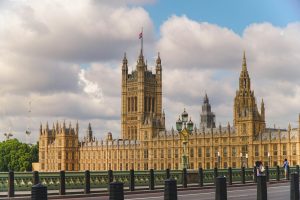With a final Brexit deal yet to be agreed there were several issues the 2018 Budget could only partially address, which may explain the Chancellor of the Exchequer saying he could upgrade the spring statement to a full fiscal event if necessary. [1] One of those issues was carbon pricing in the UK. Beyond some hints on the future direction of travel, there was little certainty on this matter. For those trying to finance power generation projects it will be vital to engage with the Government as it wrestles with this question.
Brexit could lead to the UK leaving the EU Emissions Trading System (ETS) and there is no certainty over what will follow. The Minister of State for Energy and Clean Growth, Claire Perry MP, has said that the Government is seeking to participate in the EU ETS at least until the end of Phase 3 in 2020. [2] Whether this can be agreed is an open question. At the moment the Brexit talks do not appear to be progressing at pace. There may not be time to resolve the question of the UK’s EU ETS membership by 29 March 2019.
The Budget has indicated that in the event of a no deal Brexit the Government will introduce a carbon tax, but that tax may not last. The tax would apply to all stationary installations currently participating in the EU ETS from 1 April 2019. It would be charged at a rate of £16 per tonne of carbon dioxide emitted over and above an installation’s emissions allowance, which would be based on the installation’s free allowances under the EU ETS. [3] However, the Budget red book also states ‘The government is also legislating so it can prepare for a range of long-term carbon pricing options.’[4] So there is no certainty about a) whether this tax will come into force b) whether the rate will be consistent and c) how long the tax will be in place before or if the Government legislates for an alternative option. This may complicate investment cases for businesses looking to build power plants in the UK.
To ensure a predictable investment environment, businesses must engage to help shape government policy. By engaging early electricity generators can help shape a system that ensures there is a predictable carbon price that they can build their plans around.
Brevia Consulting provides straightforward political advice and support to businesses and organisations.
Discover how Brevia can provide public affairs support to your organisation by calling the Brevia Energy Team on 020 7091 1650 or emailing contact@brevia.co.uk
[1] Philip Hammond MP, Hansard, 29 October 2018, Col. 654, link
[2] EU Energy and Environment Sub-Committee Press Release, 21 March 2018, link
[3] HM Treasury, Budget 2018, 29 November 2018, pp 47-48, link
[4] HM Treasury, ibid., 29 November 2018, pp 47-48, link



